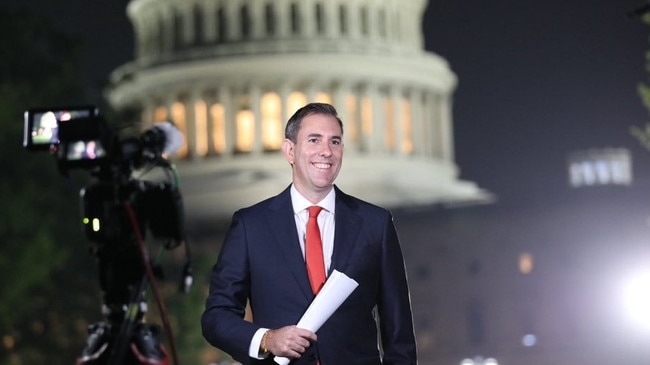
Despite fears about double-dip inflation, the Treasurer is now ramping up the growth problem as the greater challenge based on a balance of probabilities about which has greater downside risk.
There is no doubt that the Treasurer’s meeting with G20 central bank governors and finance ministers in Washington has been a sobering affair.
Reflecting this, there was a subtle but meaningful shift in Chalmers’ language in his address to the International Monetary Fund that alludes to the shift in emphasis.
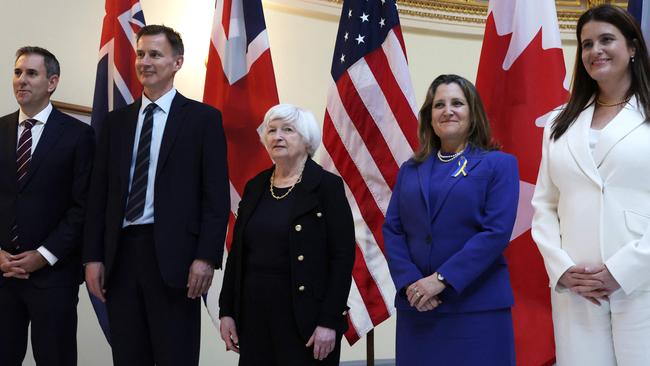
But there is also an element of political rhetoric to the Treasurer’s warnings. The government needs to defend the massive clean energy and manufacturing investment it has already flagged as being central to its budget plan. Talking up the growth challenge supports the political narrative.
Chalmers now acknowledges that there is risk of a collision between the two fundamental problems facing the Australian economy and the government’s balance sheet.
He says the economic strategy remains one primarily focused on inflation, which remains too high, while the budget will have a “stronger” emphasis on growth.
A lot has changed in the past few weeks. This is forcing a rethink, a recalibration, of the forward strategy, which will no doubt feed into the discussions of the Expenditure Review Committee between now and the May budget.
Clearly Chalmers has been given a grim assessment by his G20 counterparts.
The shift in language has gone from recognising inflation was a problem but was moderating to one of growth as the problem. The balance of risks was now shifting this way.
Chalmers is now facing a bigger problem than he would have imagined at the start of the year. At the same time, China is looming as a significant revenue problem for the budget due to iron ore prices.
What Chalmers is saying is that outlook has worsened even further in recent weeks.
While the downside risks to growth are becoming more stark, other economies are seeing inflation re-emerge as a significant risk.
The situation in the Middle East is worsening, so is the war in Ukraine, China is slowing. The outcome of the US election and the unpredictability that could be injected into the global economic and strategic balance should Donald Trump be elected is a complicating factor.
Either way, the Treasurer is now saying all of these factors are going to affect the budget strategy one way or another.
The resilience of the economy as expressed by the low unemployment numbers is one of the key indicators the Albanese government has going for it.
There will be serious political consequences for Labor in getting this wrong.


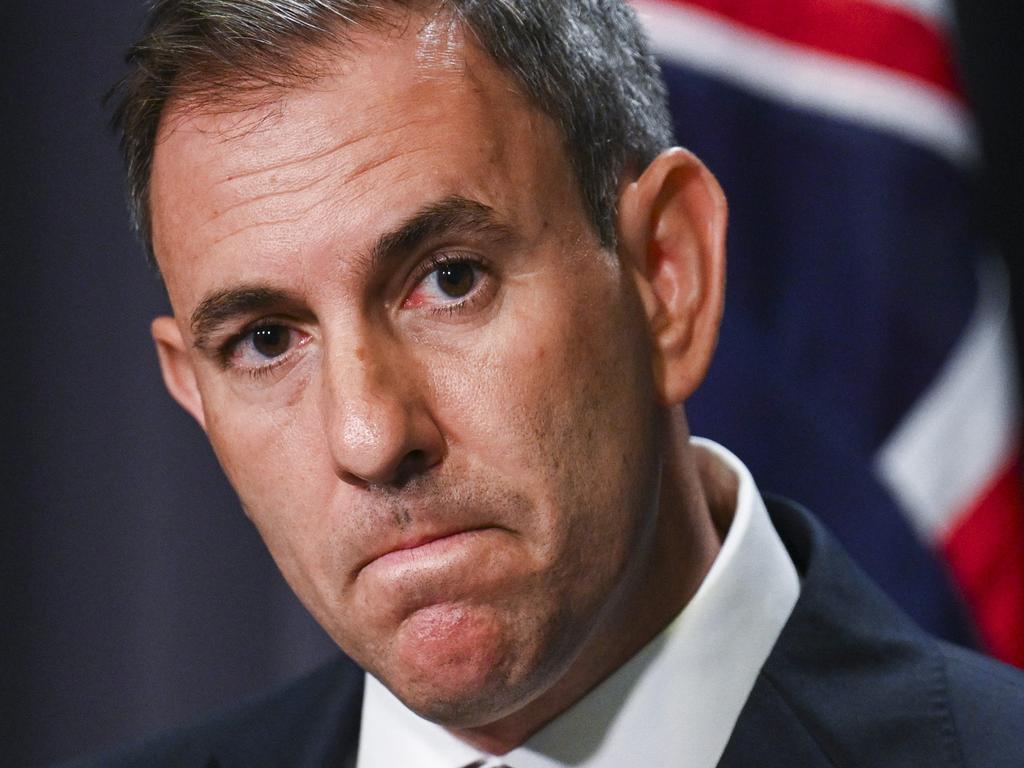
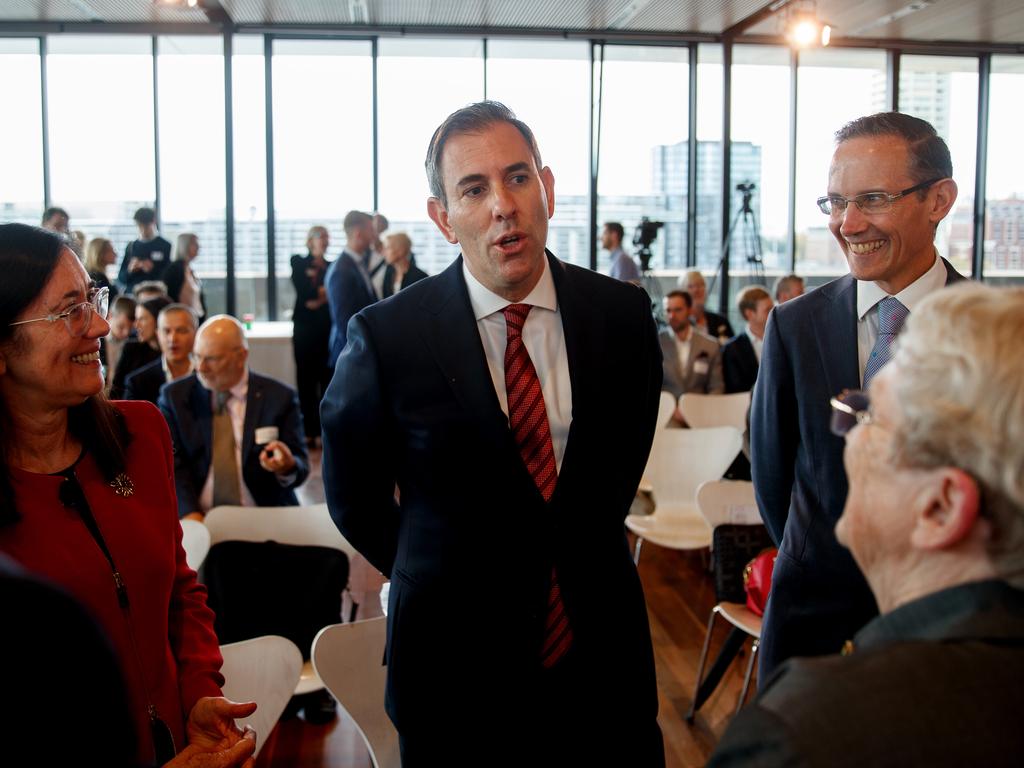
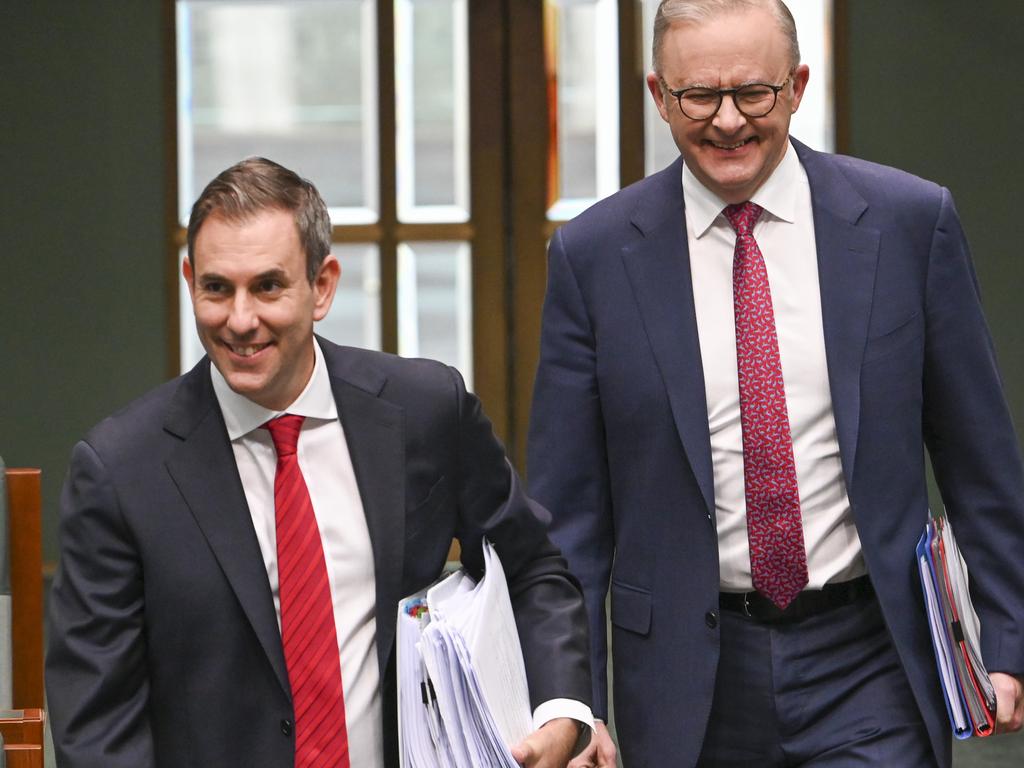



Only weeks out from the budget, Jim Chalmers has started laying the groundwork for the revision of the government’s fiscal and economic strategy as he warns of a further deterioration in the economic outlook.